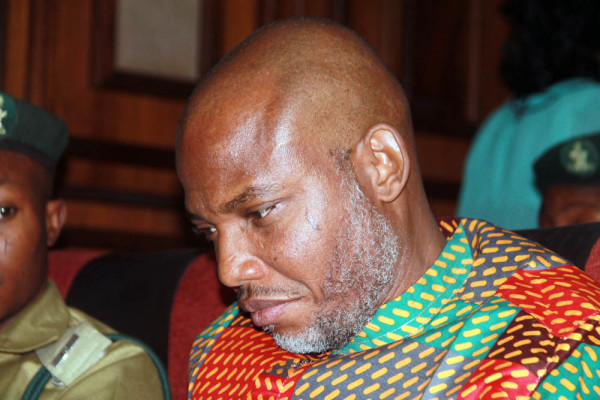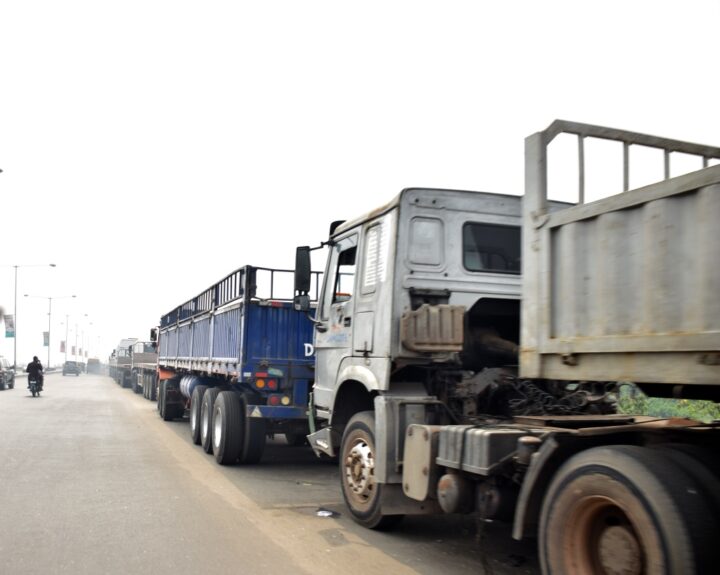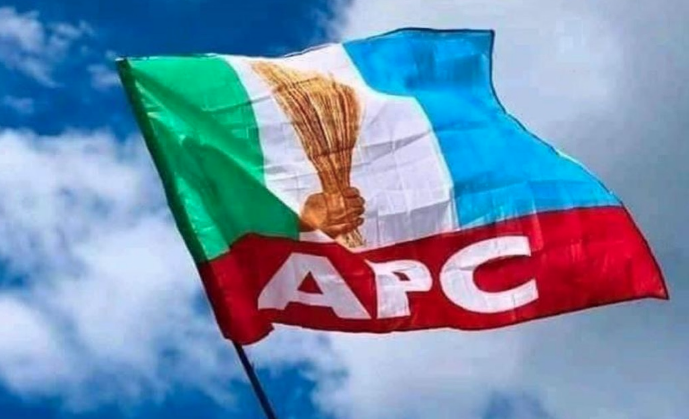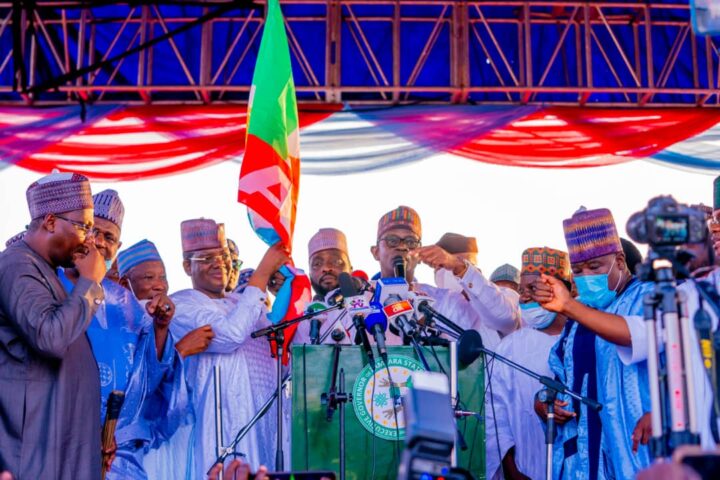What had begun like an uneventful Tuesday evolved into the relatively unexpected, as news broke sometime after mid-day that Nnamdi Kanu had been arrested and extradited to Nigeria — not as the triumphant secessionist leader as he had hoped when he fled the country in 2017, but as a “fugitive” brought before the law to answer to crates of unsettled court cases.
Kanu and his agitation for secession, which birthed the proscribed Indigenous People of Biafra (IPOB), began with an obscure Radio Biafra in 2014 and, before the next year, became the face of the biggest secessionist movement in the country since the Nigerian Civil War.
THE LAGOS ARREST AND A RACE TO SELF-EXILE
On October 14, 2015, Kanu was arrested at a hotel in Lagos by operatives of the Department of State Services (DSS) and thus began his race to elude the reaching hand of the Nigerian government.
Advertisement
Later that year, several courts ordered the release of the IPOB leader, but the DSS failed to comply.
The security agency, instead, slammed another five-count charge of treasonable felony on Kanu and, in 2016, three courts ruled his remandment in Kuje prison, citing threats to national security.
On April 25, 2017, the federal high court in Abuja granted Kanu bail on “health grounds”, and three days later he became a free man once again after being detained for 18 months.
Advertisement
His release followed the perfection of his bail condition, which included providing three sureties — one of whom must be a serving senator; the second, a Jewish leader, and the third, a highly respected Nigerian.
The bail also came with some caveats — that Kanu must not grant media interviews and avoid being seen in a crowd of more than 10 people. The terms were, however, flouted at least three times within a few weeks of his release.
“I don’t care,” he had retorted, during an interview when asked if speaking to the media could get him into trouble.
“It’s like asking me not to breathe. I can’t go outside to call for a press conference. I can’t go on Biafra Radio to broadcast. I can’t allow large groups of people to basically congregate outside to see me.”
Advertisement
His disregard for the court order was the stick with which Labaran Magaji, the federal government’s counsel, used to demand that the bail be revoked. But the IPOB leader had retorted that “any person who comes to arrest Nnamdi Kanu in Biafra land will die here”.
Amid the back and forth, IPOB’s popularity had gathered momentum and a handful of supporters had grown into hundreds who, spurred by ferocious passion and the constant hounding of Kanu by the government, organised several protests in favour of Kanu.
In reaction to the challenge, the Nigerian Army announced the launch of the “operation Python Dance”, which it said was to curb the “violent agitations by secessionist groups amongst other crimes that have recently bedevilled the south-east region”.
Around this period was when Kanu was last seen in Nigeria.
Advertisement
‘SMUGGLED OUT OF THE PYTHON’S REACH’
In September 2017, the army’s ‘python’ danced to the doorsteps of the IPOB leader’s family home in Afarakwu, Abia state. Eyewitnesses claimed the soldiers surrounded the house after arriving in the town in armoured vehicles and Hilux vans.
Advertisement
After the invasion of their home by the military, Kanu and his parents were not seen in public for two weeks, which birthed the reports that the IPOB leader may have been killed by soldiers. The news gained a bit of credence when Emmanuel, Kanu’s younger brother, said he strongly believed his brother fell into the hands of troops.
The Nigerian Army, however, maintained that it had not arrested nor killed him.
Advertisement
It was almost a year after the incident that Kanu resurfaced and narrated how he was “smuggled out” of the country by relatives.
JUMPING BAIL
Advertisement
In October 2017, when the court sat to resume the treason trial dangling around the neck of the IPOB leader, he was nowhere to be found. Enyinnaya Abaribe, senator representing Abia south and one of the sureties that stood for Kanu, was asked to produce the accused or forfeit his N100 million bail bond.
Speaking on the incident later, Kanu said he skipped bail because of the stringent conditions, which “caged” him along with the secessionist group.
SPOTTED IN GHANA
Months after he failed to appear at the resumed trial, TheCable reported that the IPOB leader was spotted in Ghana alongside his wife in February 2018.
Sources claimed that he was living in an area called Cantonment, also in Accra, at an estate called “Arabella,” stating that he regularly patronised suya joints in remote parts of the city.
It appeared nothing much was done with the information by security operatives, but afterwards, the IPOB leader wasn’t seen in public for a while.
EXTRADITED TO NIGERIA
On June 29, news filtered in that Kanu hadn’t just been apprehended in his previously unknown location in the United Kingdom, but had been extradited to Nigeria. It was a quiet job that didn’t leak to the public until the authorities decided to announce it.
Explaining how the IPOB leader was arrested, Abubakar Malami, attorney-general of the federation (AGF), said Kanu was arrested on June 27 through joint efforts of the intelligence and security services, and promptly returned to the country to resume his unfinished trial.





